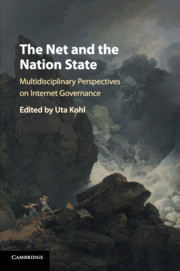
-
Select format
-
- Publisher:
- Cambridge University Press
- Publication date:
- May 2017
- May 2017
- ISBN:
- 9781316534168
- 9781107142947
- 9781316507612
- Dimensions:
- (228 x 152 mm)
- Weight & Pages:
- 0.62kg, 322 Pages
- Dimensions:
- (229 x 152 mm)
- Weight & Pages:
- 0.47kg, 322 Pages
You may already have access via personal or institutional login
Book description
This collection investigates the sharpening conflict between the nation state and the internet through a multidisciplinary lens. It challenges the idea of an inherently global internet by examining its increasing territorial fragmentation and, conversely, the notion that for states online law and order is business as usual. Cyberborders based on national law are not just erected around China's online community. Cultural, political and economic forces, as reflected in national or regional norms, have also incentivised virtual borders in the West. The nation state is asserting itself. Yet, there are also signs of the receding role of the state in favour of corporations wielding influence through de-facto control over content and technology. This volume contributes to the online governance debate by joining ideas from law, politics and human geography to explore internet jurisdiction and its overlap with topics such as freedom of expression, free trade, democracy, identity and cartographic maps.
Contents
Metrics
Altmetric attention score
Full text views
Full text views help Loading metrics...
Loading metrics...
* Views captured on Cambridge Core between #date#. This data will be updated every 24 hours.
Usage data cannot currently be displayed.
Accessibility standard: Unknown
Why this information is here
This section outlines the accessibility features of this content - including support for screen readers, full keyboard navigation and high-contrast display options. This may not be relevant for you.
Accessibility Information
Accessibility compliance for the PDF of this book is currently unknown and may be updated in the future.


